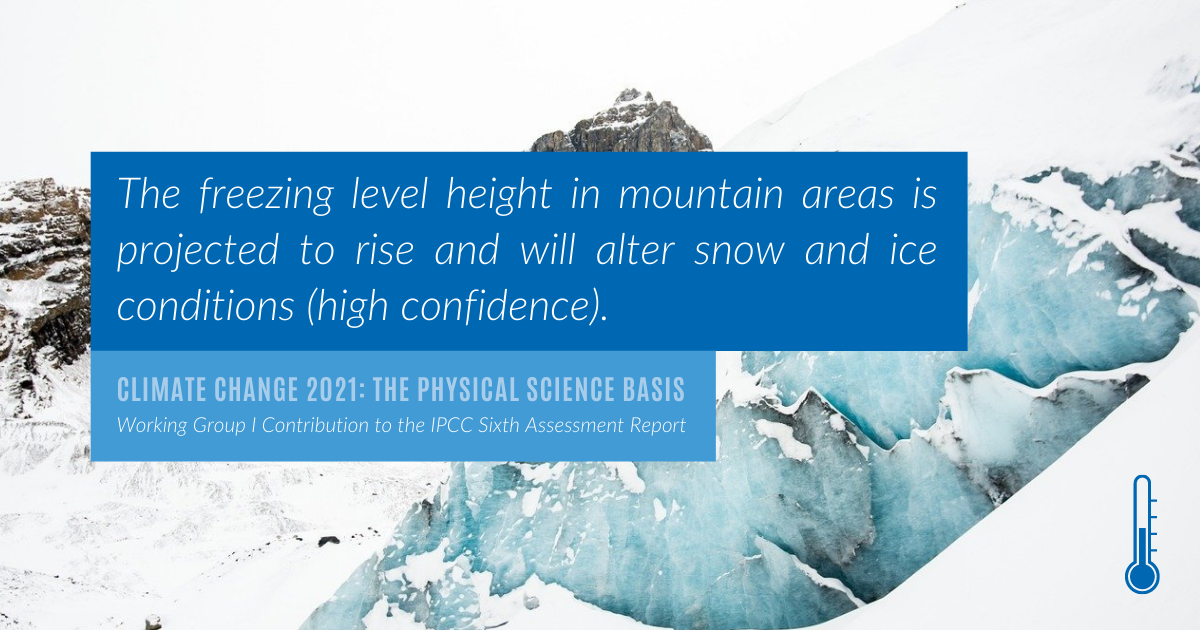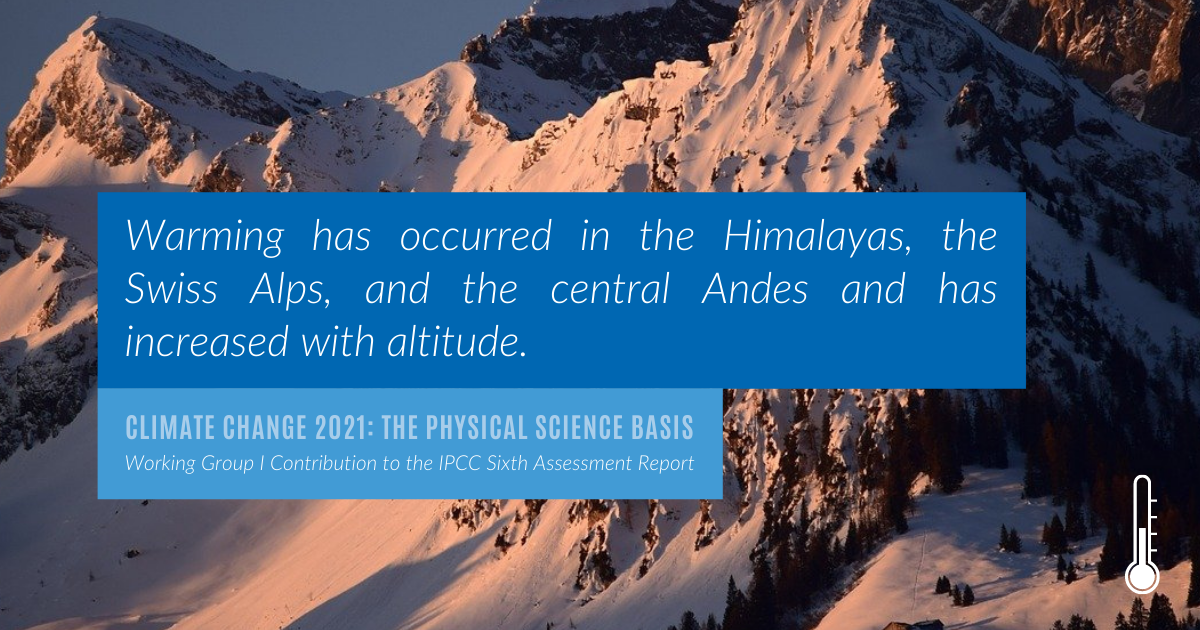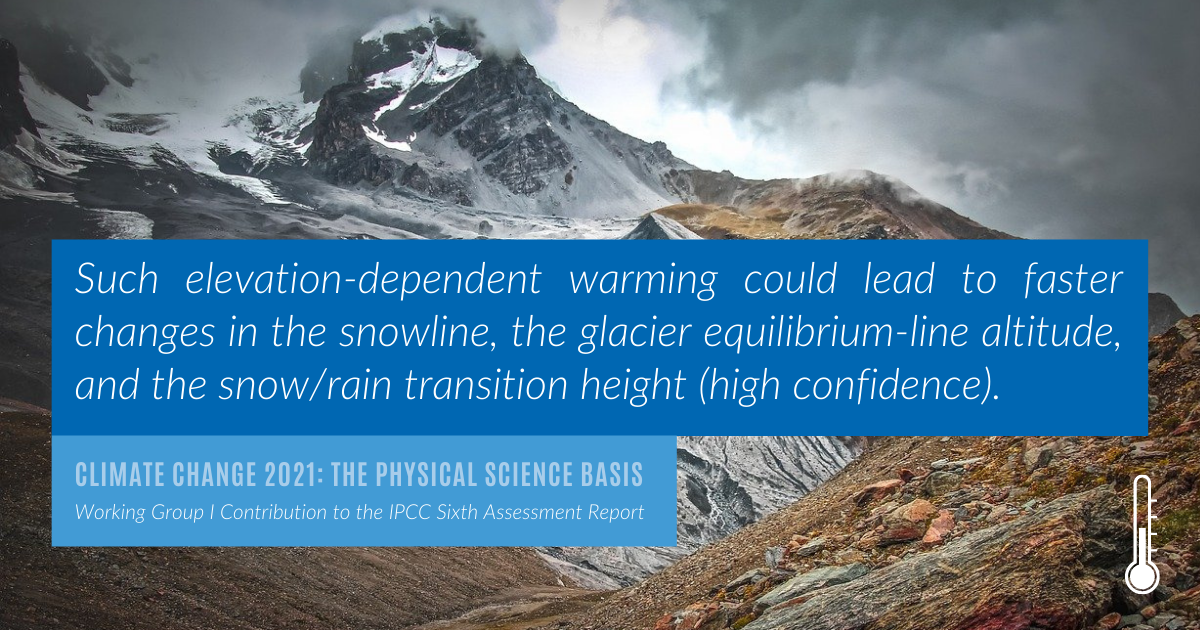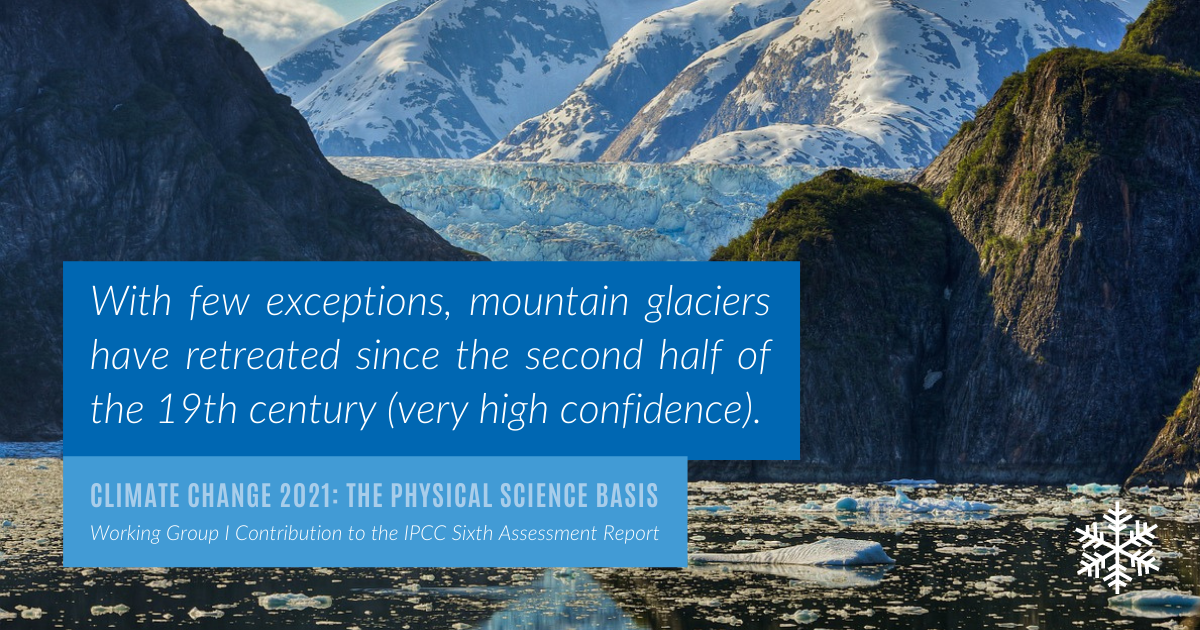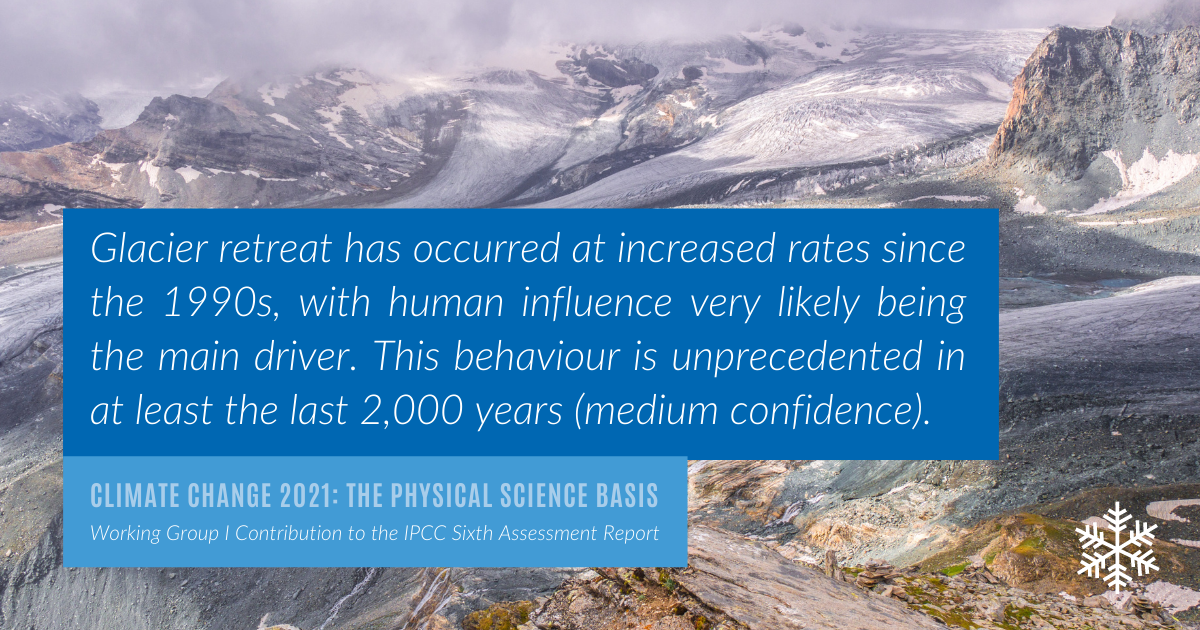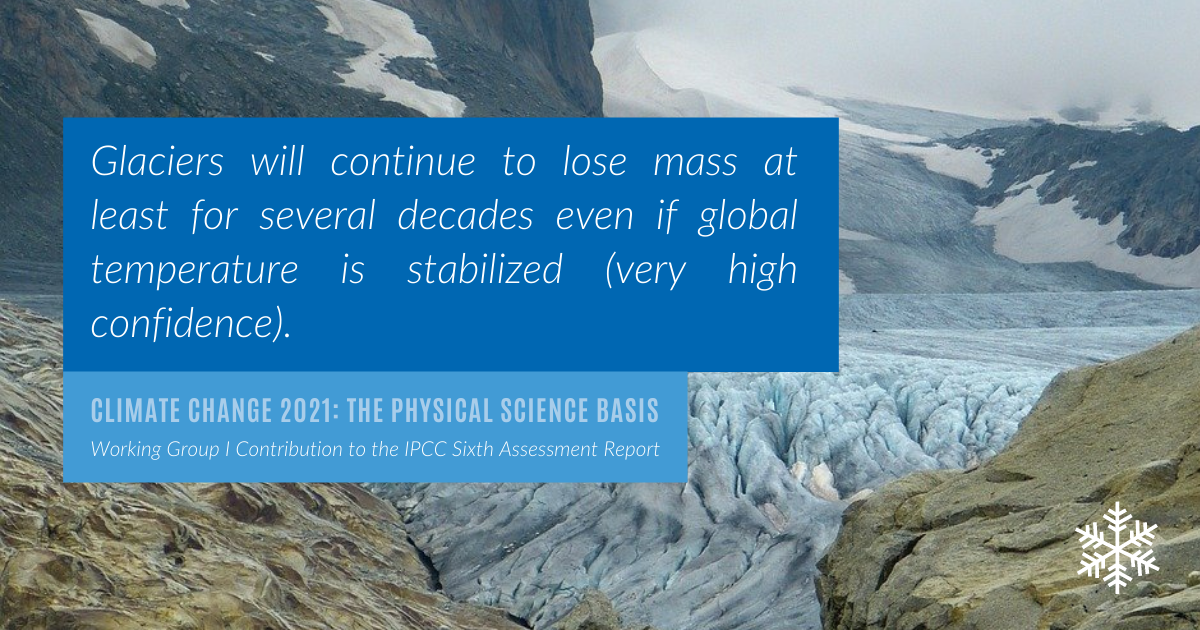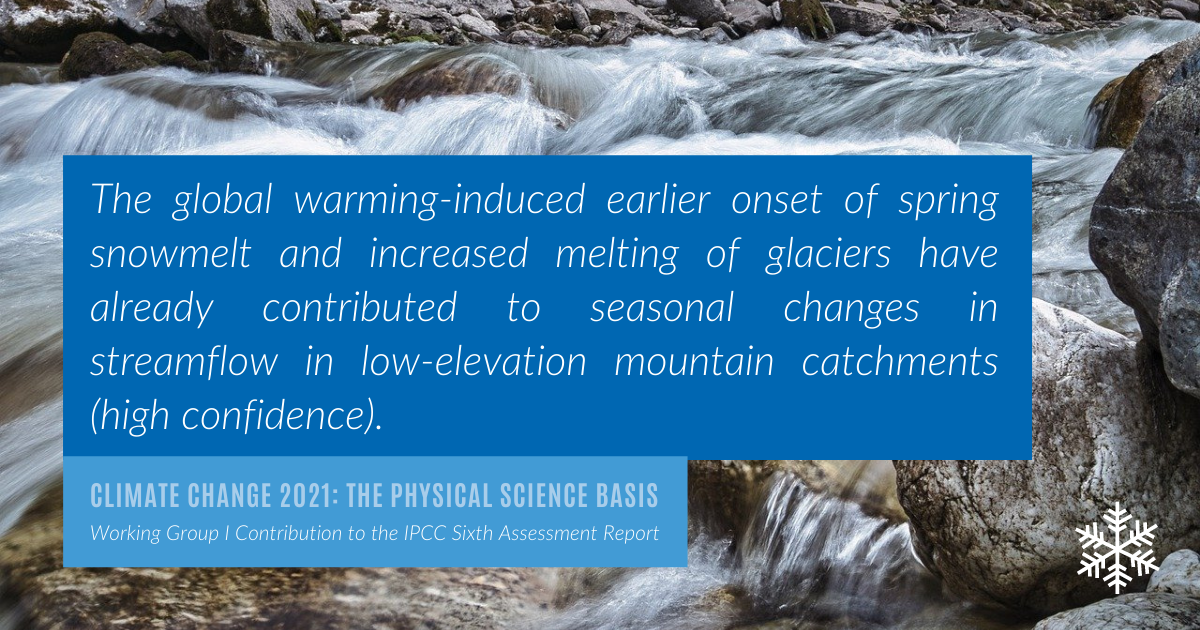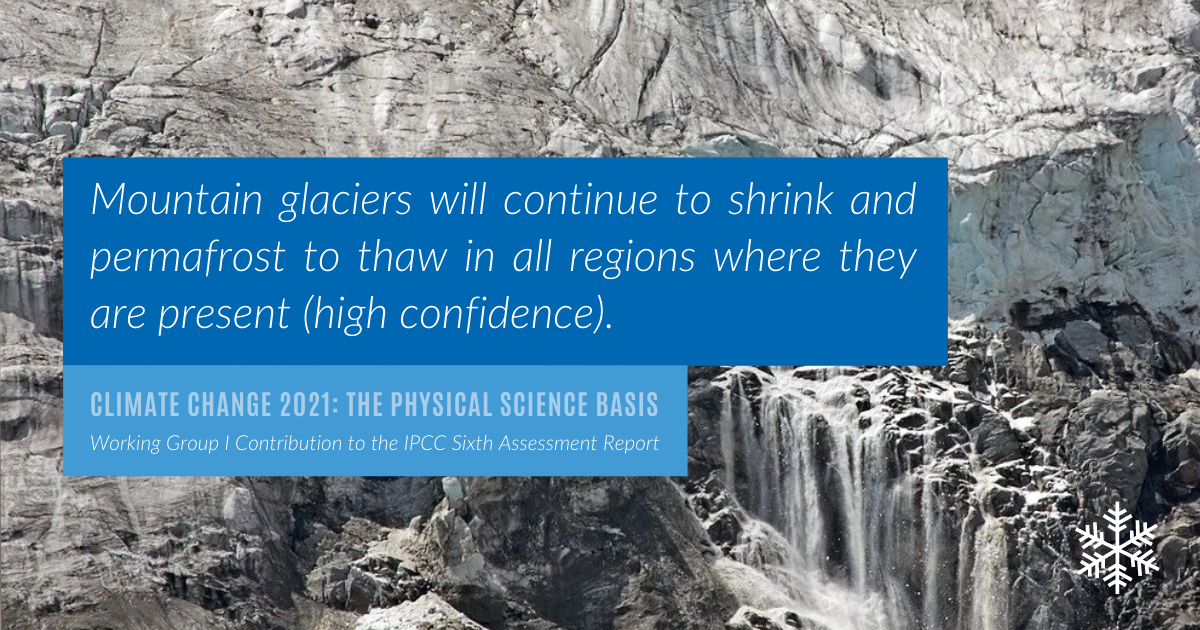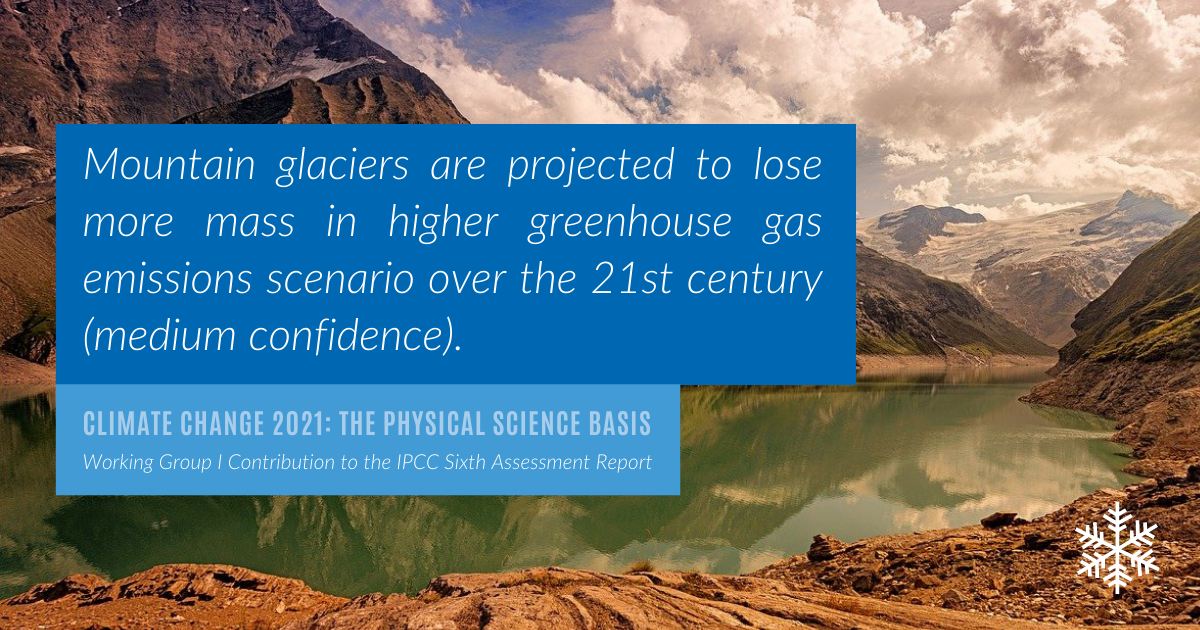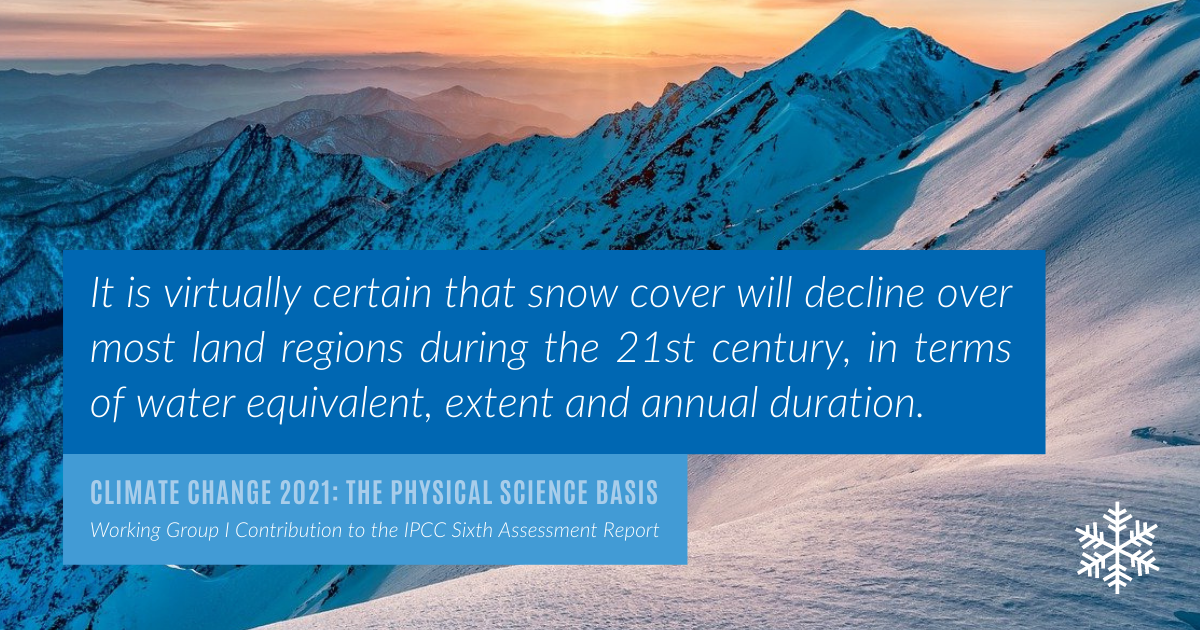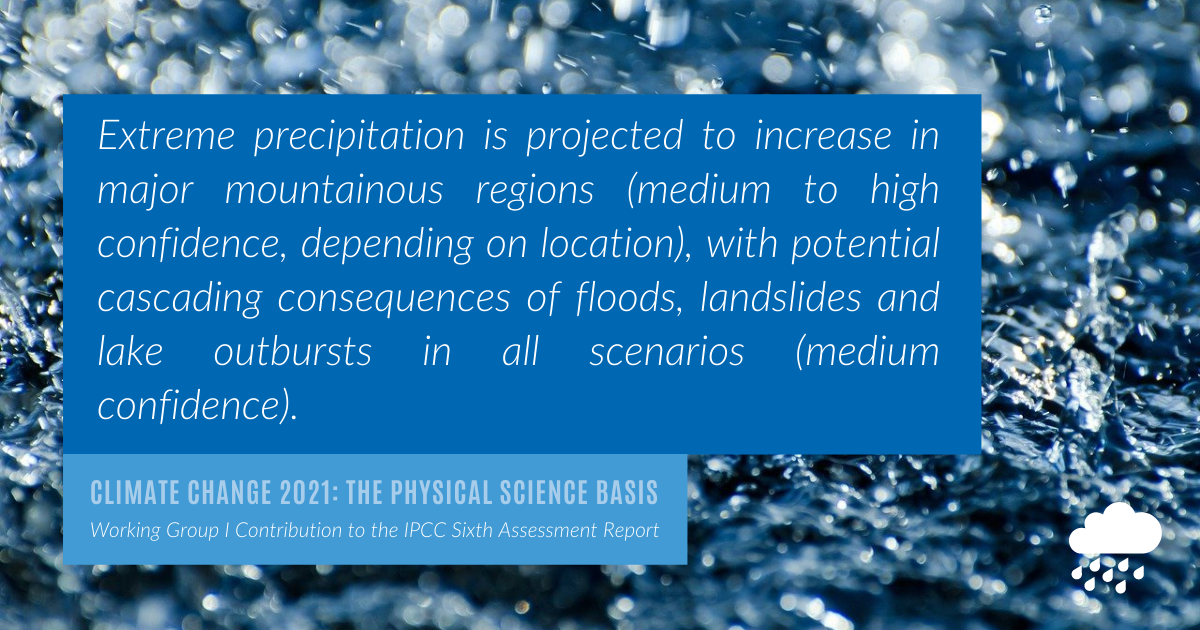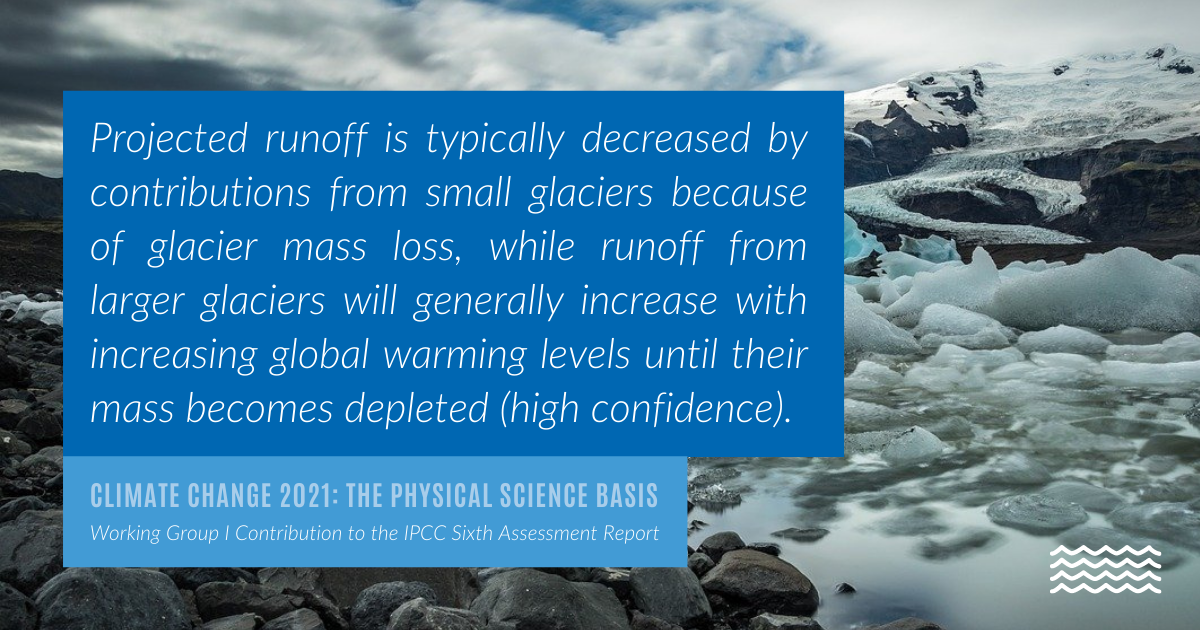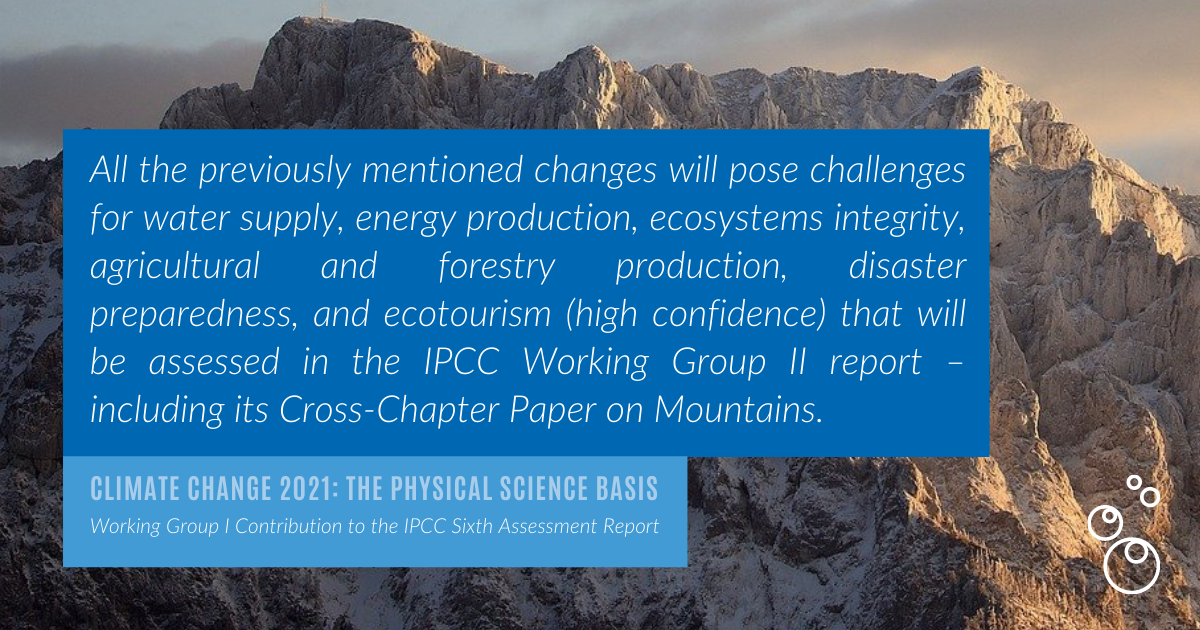Human activity has warmed the planet at a rate that is unprecedented in at least the last 2,000 years, a landmark IPCC report says. Continued inaction will have dire consequences across every corner of the globe, from the depths of the oceans to the highest peaks of our changing mountains.
The language in the most recent United Nations Intergovernmental Panel on Climate Change (IPCC) report is stark: it is unequivocal that human influence has warmed the Earth’s atmosphere, ocean, and land – and the resulting changes to many of our planetary support systems are irreversible over hundreds, if not thousands, of years.
“IPCC Working Group I Report is a code red for humanity.” – UN Secretary-General António Guterres.
The Working Group I contribution to the IPCC’s Sixth Assessment Report, entitled AR6 Climate Change 2021: The Physical Science Basis, is a sober assessment of our planet’s future, compiled by over 200 hundred scientists and approved by 195 governments. In it, the authors state that planet’s global surface temperature has increased faster since 1970 than in any other 50-year period over at least the last 2000 years – and the consequences are being felt in weather and climate extremes across the globe. As the report makes clear, immediate, decisive, and drastic action to reduce emissions of carbon dioxide and other greenhouse gases is urgently needed to prevent the situation from worsening significantly.
“Climate change is already affecting every region on Earth, in multiple ways,” says IPCC Working Group I Co-Chair Panmao Zhai. “The changes we experience will increase with additional warming.”
Faster warming
The report provides new estimates of the chances of crossing the global warming level of 1.5°C in the next decades, and finds that unless there are immediate, rapid and large-scale reductions in greenhouse gas emissions, limiting warming to close to 1.5°C or even 2°C will be beyond reach.
The report shows that emissions of greenhouse gases from human activities are responsible for approximately 1.1°C of warming since 1850-1900, and finds that averaged over the next 20 years, global temperature is expected to reach or exceed 1.5°C of warming. This assessment is based on improved observational datasets to assess historical warming, as well progress in scientific understanding of the response of the climate system to human-caused greenhouse gas emissions.
“This report is a reality check,” said IPCC Working Group I Co-Chair Valérie Masson-Delmotte. “We now have a much clearer picture of the past, present and future climate, which is essential for understanding where we are headed, what can be done, and how we can prepare.”
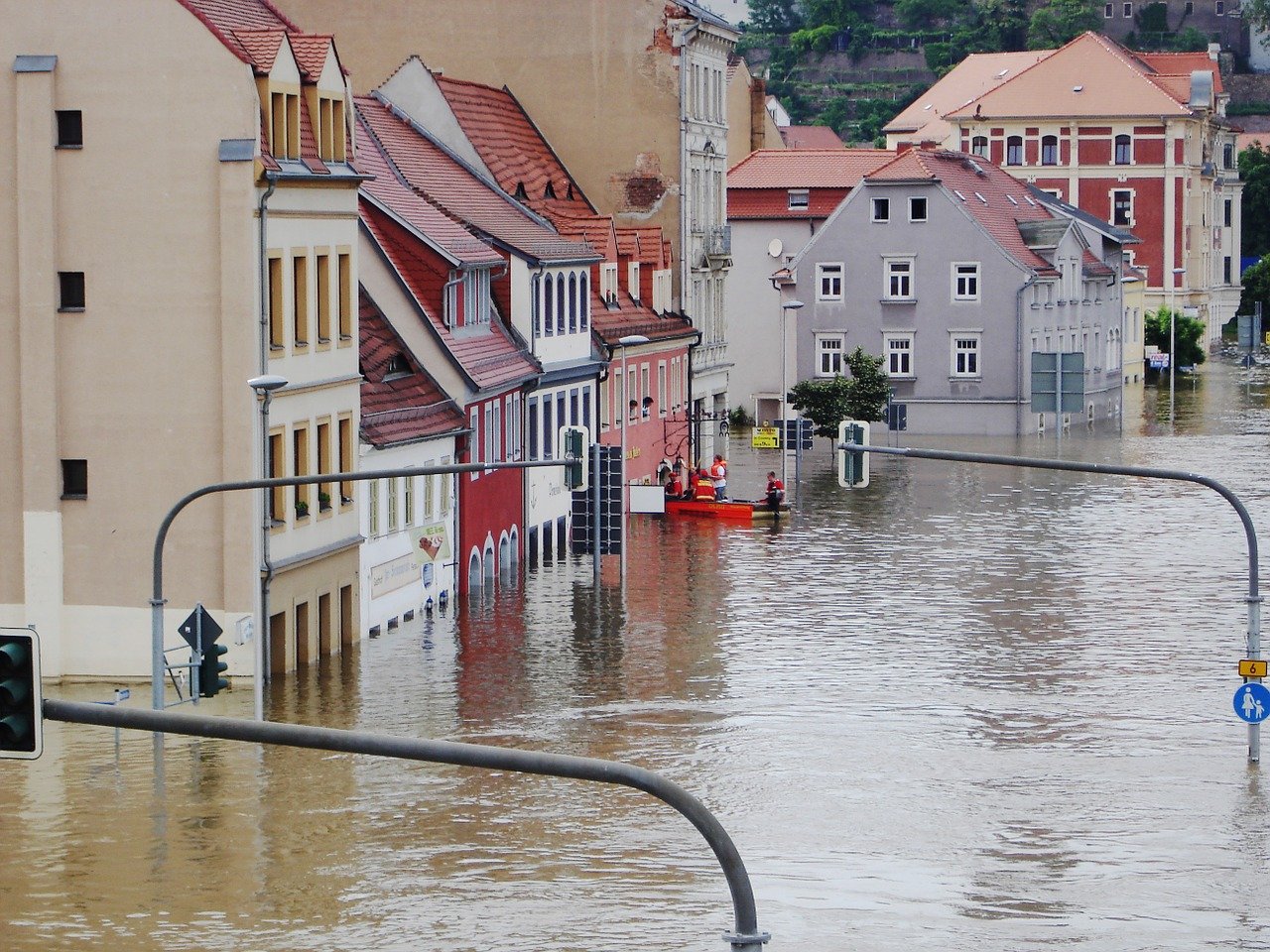
Flooding of the Elbe River in Meissen, Germany. Picture by Lucy Kaef.
Every region facing increasing changes
Many characteristics of climate change directly depend on the level of global warming, but what people experience is often very different to the global average. For example, warming over land is larger than the global average, and it is more than twice as high in the Arctic.
The report projects that in the coming decades climate changes will increase in all regions. For 1.5°C of global warming, there will be increasing heat waves, longer warm seasons and shorter cold seasons. At 2°C of global warming, heat extremes would more often reach critical tolerance thresholds for agriculture and health, the report shows.
But it is not just about temperature. Climate change is bringing multiple different changes in different regions – which will all increase with further warming. These include changes to wetness and dryness, to winds, snow and ice, coastal areas and oceans. For example:
- Climate change is intensifying the water cycle. This brings more intense rainfall and associated flooding, as well as more intense drought in many regions.
- Climate change is affecting rainfall patterns. In high latitudes, precipitation is likely to increase, while it is projected to decrease over large parts of the subtropics. Changes to monsoon precipitation are expected, which will vary by region.
- Coastal areas will see continued sea level rise throughout the 21st century, contributing to more frequent and severe coastal flooding in low-lying areas and coastal erosion. Extreme sea level events that previously occurred once in 100 years could happen every year by the end of this century.
- Further warming will amplify permafrost thawing, and the loss of seasonal snow cover, melting of glaciers and ice sheets, and loss of summer Arctic sea ice.
- Changes to the ocean, including warming, more frequent marine heatwaves, ocean acidification, and reduced oxygen levels have been clearly linked to human influence. These changes affect both ocean ecosystems and the people that rely on them, and they will continue throughout at least the rest of this century.
- For cities, some aspects of climate change may be amplified, including heat (since urban areas are usually warmer than their surroundings), flooding from heavy precipitation events and sea level rise in coastal cities.
For the first time, the Sixth Assessment Report provides a more detailed regional assessment of climate change, including a focus on useful information that can inform risk assessment, adaptation, and other decision-making, and a new framework that helps translate physical changes in the climate – heat, cold, rain, drought, snow, wind, coastal flooding and more – into what they mean for society and ecosystems.
This regional information can be explored in detail in the newly developed Interactive Atlas as well as regional factsheets, the technical summary, and underlying report.
What does this report mean for our changing mountains?
Click the arrows below to scroll left and right and explore some of the high level key messages in the WGI Report regarding common regional changes in mountains.
Source: Common Regional Changes in Mountains Factsheet, IPCC AR6 Climate Change 2021: The Physical Science Basis
Download the Common Regional Changes in Mountains Factsheet.
Human influence on past and future climate
“It has been clear for decades that the Earth’s climate is changing, and the role of human influence on the climate system is undisputed,” said Masson-Delmotte. Yet the new report also reflects major advances in the science of attribution – understanding the role of climate change in intensifying specific weather and climate events such as extreme heat waves and heavy rainfall events.
The report also shows that human actions still have the potential to determine the future course of climate. The evidence is clear that carbon dioxide (CO2) is the main driver of climate change, even as other greenhouse gases and air pollutants also affect the climate.
“Stabilizing the climate will require strong, rapid, and sustained reductions in greenhouse gas emissions, and reaching net zero CO2 emissions. Limiting other greenhouse gases and air pollutants, especially methane, could have benefits both for health and the climate,” said Zhai.
Responding to the report, UN Secretary-General António Guterres echoed the authors calls for urgent and immediate action: “IPCC Working Group I Report is a code red for humanity. The alarm bells are deafening, and the evidence is irrefutable: greenhouse gas emissions from fossil fuel burning and deforestation are choking our planet and putting billions of people at immediate risk. Global heating is affecting every region on Earth, with many of the changes becoming irreversible […] We are at imminent risk of hitting 1.5 degrees in the near term. The only way to prevent exceeding this threshold is by urgently stepping up our efforts, and pursuing the most ambitious path.”
Watch the press conference for AR6 Climate Change 2021: The Physical Science Basis.
More information
AR6 Climate Change 2021: The Physical Science Basis is the first of three reports that comprise the IPCC's sixth climate assessment since 1990. The Working Group II contribution focused on climate change impacts, adaptation, and vulnerability is due out in February 2022, and includes a dedicated Cross-Chapter Paper on Mountains that will synthesize key messages and conclusions from the IPCC Special Reports and the AR6 WGI Report.
More details, including the full report, summary for policymakers, and regional factsheets, can be found on the IPCC website.
Cover image by Julia Schwab.




